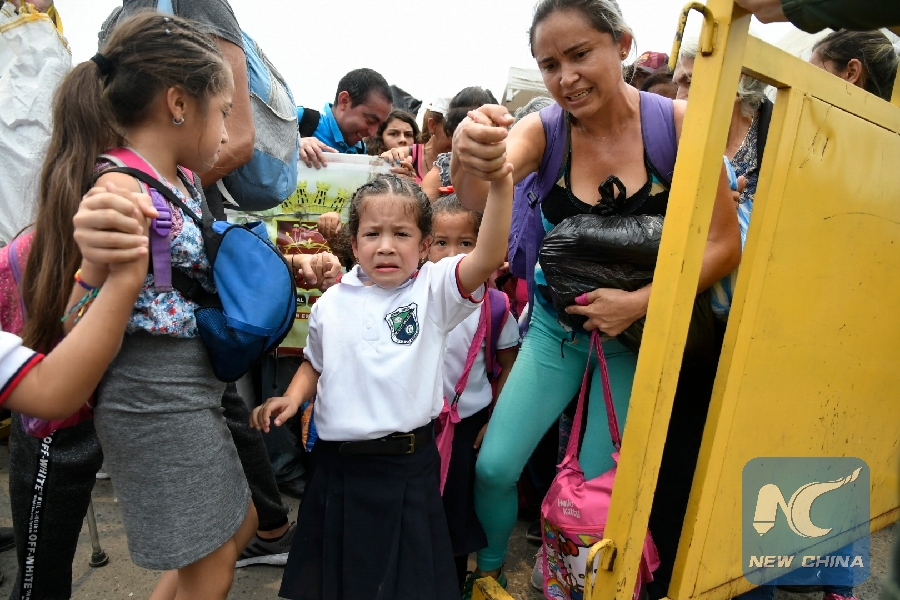
A mother and her children cross from Colombia into San Antonio del Tachira, Venezuela through a gap between border barriers, at the Simon Bolivar international bridge on March 29, 2019. (Xinhua/AFP)
UNITED NATIONS, April 5 (Xinhua) -- As a result of the Venezuela migrant crisis, an estimated 1.1 million children will need protection and access to basic services across Latin America and the Caribbean in 2019, the UN children's agency said Friday.
These children will include those uprooted from Venezuela, as well as returnees and those living in host and transit communities, UNICEF said, noting that the 1.1 million is a projected increase from the nearly 500,000 children in need today.
The agency called on governments in the region to uphold the rights of all children, including migrants and refugees, and to ensure their access to essential services.
The UN's humanitarian partners project that up to 4.9 million people in the region, including Brazil, Colombia, Ecuador, Guyana, Panama, Peru and Trinidad and Tobago, will need assistance this year because of political and economic conditions inside Venezuela that are driving regional migration.
Uprooted children and families face challenges to regularizing their immigration status which can affect their access to social protection, healthcare, early childhood development, education, sustainable livelihoods and child protection.
Meanwhile, the lack of comprehensive public policies on migratory issues in host countries is putting children at higher risk of discrimination, violence, family separation, xenophobia, exploitation and abuse.
UNICEF is particularly concerned about reports of xenophobia, discrimination and violence perpetrated against Venezuelan children and families in host communities.
Some migrants, including unaccompanied and separated children, pregnant women, nursing mothers as well as indigenous people, are at increased risk.
"Human rights standards call for states to allow children entry and registration as a precondition for carrying out initial protection assessment procedures," said Maria Cristina Perceval, UNICEF Regional Director for Latin America and the Caribbean.
"Even when they are unaccompanied and without official documentation, they should be immediately directed to specialized personnel, who can assess their protection needs," she added.
UNICEF has appealed for 69.5 million U.S. dollars to meet the needs of uprooted children from Venezuela and those living in host and transit communities across the Latin America and the Caribbean region.
The UNICEF response involves working with national and local governments, host communities and partners to ensure access to safe drinking water and sanitation, protection, education and health services for uprooted children and those in vulnerable communities.
UNICEF is also working with governments in transit and host countries to uphold the rights of uprooted children.

